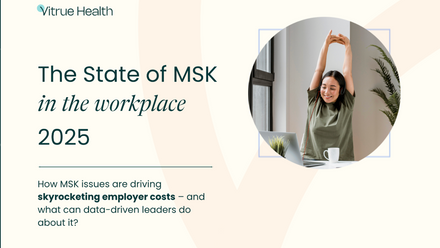How to help employees who have had cancer return to work

During diagnosis and treatment phase, the focus generally is on the main objective of ‘being cured’ and the post-treatment life plan is not given due consideration. However, palliative treatment, which is not aiming to cure the disease but to improve quality of life and relieve symptoms for years, sometimes decades, is becoming more commonplace.
Whatever the situation for your employee, be it under treatment, remission, cancer free or palliative treatment, going back to work can be daunting. Although they may be returning to familiar surroundings and people, and a role that they know and understand, they may still be worried about how they will cope with all aspects of their life including physical, mental, financial, and social. A range of supports and measures are therefore essential to ensure that the return is as seamless as possible.
Get their GPs approval
The first thing to do for employees who are planning a transition back to the workplace is to ensure they talk with the doctor or the nurse practitioner responsible for their treatment, or a GP who is supporting them.
The employee should ask if returning to work is a good decision, considering their medical status. They discuss the possible long-term side effects of treatment and the impacts of the physical and psychological demands of their job.
Additionally, the employee should ask for advice on diet and lifestyle, managing symptoms and pain, and self-care practices that can improve their quality of life and support the daily work routine. Including wellness supports such as meditation, physical exercises and massages in any return-to-work plan can greatly support the employee’s mental health.
Consider the options
Once the doctors’ approval is received, talk to your employee to discuss their situation before their return. This is an important step for any employer and can be done in-person or via a phone conversation between the employee and their manager/supervisor or the human resource manager, to ensure all the potential issues and challenges are addressed. Consider what options are open: is it feasible for the employee to return to work full time? Can you, the employer, facilitate a more flexible approach such as part time hours, job sharing or a home office?
Review and discuss their job role and responsibilities and highlight those areas, such as deadlines and targets, which may be stressful. Minor changes to the work routine such as small breaks during the day, the use of calendars and alarms to remember important meetings and tasks, and doing lighter duties at first, can help your employee deal with some of those common symptoms experienced by cancer survivors.
Transport and accessibility
Another point to take into consideration, particularly if mobility has been affected by the treatment and they are physically returning to the office, is transport availability and access to the building and facilities.
The best outcome is that you and your employee can find mutually suitable arrangements that meet their needs as well as the organisation’s needs.
Talking about their illness may not be easy for your employee or their colleagues and although most people are sympathetic and supportive, there may be times when your employee feels uncomfortable. Ask them to be clear about their boundaries, plan how they wish to talk about their cancer, ensure their line manager is aware and allow the employee to tell their colleagues when they are not comfortable answering questions or receiving support.
Remember that the choice is theirs, but it’s best to be prepared to avoid uncomfortable situations. Ensure your employee is aware of any available employee assistance and mental health programmes to support them during this transition.
Financial impact
Cancer treatment can have a significant monetary impact and it’s important to remind your employee to review their financial situation and become familiar with financial supports and entitlements. Checking credit and mortgage agreements for flexibility on payments can help avoid unexpected financial pressure as returning to work on shorter hours can lead to a drop in income.
It’s important that your employee knows their rights as a cancer patient and consulting a professional financial adviser may help them understand what their financial options are.
Returning to work can be more tiring and emotional for your employee than you might think. It is essential that both you and your employee are realistic and honest about their physical and mental capabilities and how long it will take them to get back to normal. Regular feedback meetings will help to tackle any issues that arise. Some treatments may result in permanent changes, so be sure that both you and your employee adjust your expectations and routine for their new circumstances.
Some people cannot cope physically or emotionally with returning to work after cancer treatment. It’s a personal choice, but the most important thing is to be honest and support your employee to make the best decisions for them. Providing access to supports that offer advice on all available options is invaluable for your employee.
The author is Dr Andrea Reis, medical anager at Further Group.
This article is provided by Further Group.
Supplied by REBA Associate Member, Further
Further is a global company with a mission







